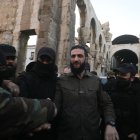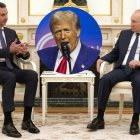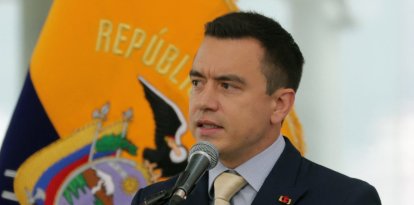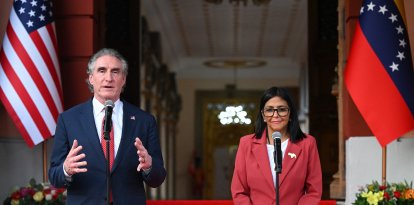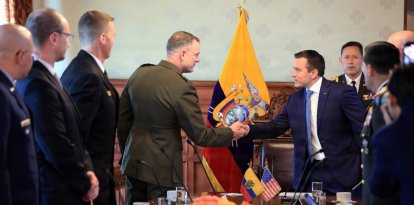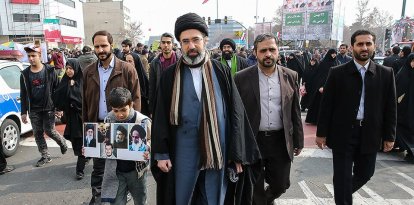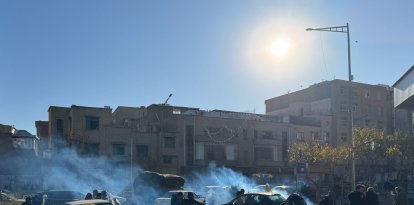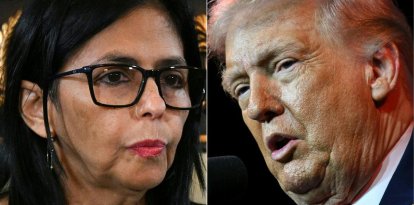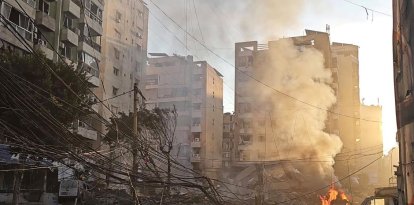Israel and U.S. work against the clock to neutralize Syria's last chemical weapons
The Assad regime maintained a limited chemical arsenal used during last decade's civil war that could potentially fall into the wrong hands.
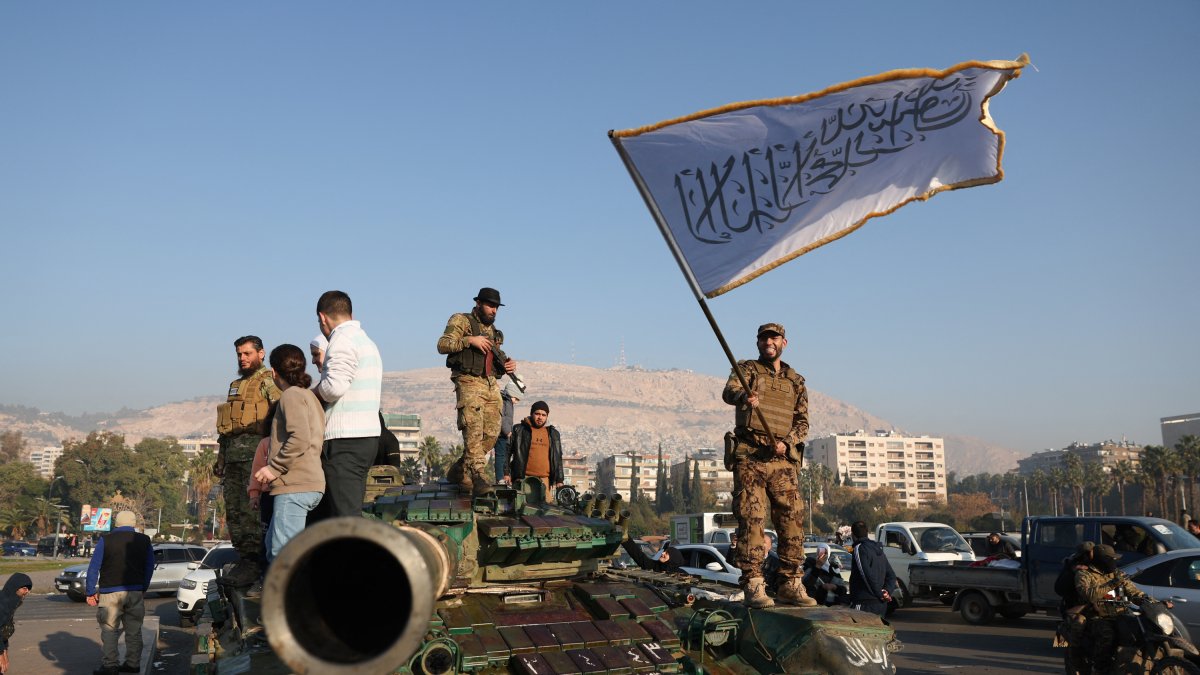
Islamist terrorists in Damascus after toppling the Assad regime.
The United States is working with its allies in the Middle East to stabilize the situation in Syria following the fall of Bashar Assad's regime. Among its top-priority objectives is to neutralize the dictatorship's chemical weapons stockpiles, to prevent them from falling into the wrong hands.
According to incoming reports, Israel is actively participating in this same objective. As of this Saturday, the Israeli Defense Forces have deployed with increased presence in the Golan Heights and established a "limited and temporary" buffer zone.
Alongside this, the Israeli air force has conducted air strikes on several positions inside Syria spread from As Suwayda in the south to the outskirts of the capital Damascus. Many of those positions, are allegedly weapons and ammunition depots. "We have a responsibility to make sure that strategic weapons systems don't fall into the wrong hands," an Israeli official told Axios.
U.S. intelligence conducted, since the conflict flared up again 11 days ago, extensive monitoring of the status of the Syrian regime's chemical arsenal. Intelligence sources in Washington assured the New York Times on Saturday that they feared that the government army loyal to Assad would come to use its chemical arsenal to slow the rebels' advance. According to the same sources, the regime kept in its possession an arsenal of missiles armed with the nerve agent sarin.
The United States has also conducted some airstrikes in Syria in the past 48 hours. U.S. Central Command announced that its forces in the country struck several Islamic State positions in central Syria to "disrupt, degrade, and defeat ISIS in order to prevent the terrorist group from conducting external operations and to ensure that ISIS does not attempt to take advantage of the current situation to reconstitute itself in central Syria."
Chemical weapons in Syria
The Syrian socialist government developed its chemical weapons program between from the late 1970s, as part of its deterrence strategy against an Israel with increasing weight in the region and the peace agreements signed between the Hebrew state and Egypt.
The Israeli military superiority, which wrested the Golan Heights from Syria, needed a response that materialized in this chemical program, largely enabled by Russia and Iran.
The Obama Administration marked the use of the chemical arsenal as a red line that would trigger its intervention in Syria. Despite White House warnings, Bashar Assad's regime made use of missiles loaded with neurotoxic agents on separate occasions.
The Ghouta chemical weapons attacks in October 2013 were the worst in terms of human losses perpetrated by the Syrian regime. Some estimates put the death toll at more than 1,700.
The international community prays for an orderly transition in Syria
The European Union on Monday called for a peaceful political transition in Syria: "More than ever, it is imperative that all stakeholders engage in an inclusive, Syrian-led and Syrian-owned dialogue on all key issues to ensure an orderly, peaceful and inclusive transition," the countries of the bloc said in an official note.
In turn, on Monday, Turkey called for the formation of an "inclusive government" in Syria. "We expect international actors, especially the United Nations, to reach out to the Syrian people and support the formation of an inclusive government," Turkish Foreign Minister Hakan Fidan said.
Turkey has been one of the main facilitators of the resurgence of Syrian rebels in the north. Erdogan's government has armed and backed several of the militias that make up the insurgent forces. It is also accused of even supporting Islamist terrorist groups that make up these forces, with Hayat Tahrir al Sham (HTS) at their head.
"We want to see a Syria where different ethnic and religious groups live in peace, with an inclusive form of government," insisted the Turkish minister, whose country supports the rebel groups that were part of the blitzkrieg offensive with the Syrian government.
Fidan assured that he wanted to see "a new Syria, which will maintain good relations with its neighbors and bring peace and stability to the region." Turkey "is ready to provide the necessary support" for this, he added.
UK to rethink treatment of terrorist groups
The British government will consider whether the Islamist terrorist group Hayat Tahrir al Sham should continue to be designated as a terrorist organization after the change of power in Syria, Britain's minister for intergovernmental relations said.
Pat McFadden told the BBC that the situation in the country is unstable and that if it stabilized any change to the ban would be a "relatively quick decision." Labour Prime Minister Keir Starmer welcomed the end of the Assad regime.
HTS is rated as a terrorist organization by the United Kingdom, the United States and the European Union due to its association with Al Qaeda. The terrorist group has changed its denomination several times, but Abu Mohamad al-Golani has always been at the forefront. During the civil war, the group was described as one of the most violent in Syria.
Russia won't confirm whether it is harboring Assad
The Kremlin declined to confirm whether Bashar Assad fled to Russia after Russian news agencies claimed the leader and his family were in Moscow and had received asylum there.
"As for the whereabouts of President Assad, I have nothing to tell you," Kremlin spokesman Dmitry Peskov said in a statement which AFP picked up.
Asked whether President Vladimir Putin had personally decided to provide refuge for Assad, Peskov replied, "Decisions like that cannot be taken without the head of state." "I have nothing more to tell you," he added. "What happened shocked the whole world. We are no exception," he added.
Russia became a main supporter of the Assad regime and maintained a considerable military presence in Syria. However, reports from correspondents in Moscow claim that even at the Syrian Embassy in Russia the flag on the building has changed.
A group of men hoisted the emblematic opposition flagwith the green stripe and the three red stars, the AFP reporter noted.





